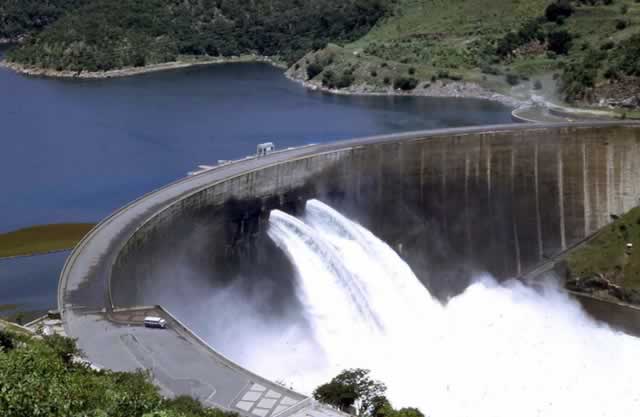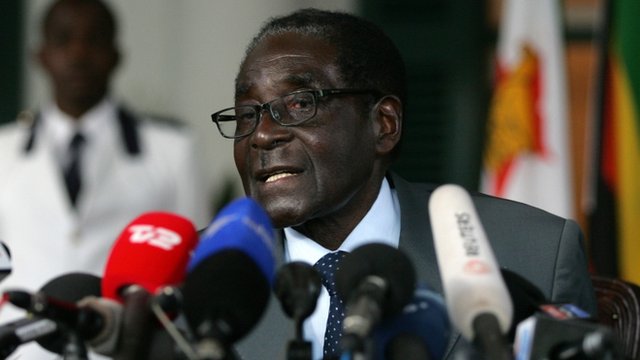KPMG secures $160m for ZPC


Funds secured from Stanbic will cover numerous development costs such as consultancy work, debt maintenance or escrow account, old Kariba plant refurbishment, construction aggregates and fees and permits, not included in the EPC contract with Sino-Hydro
Golden Sibanda Senior Business Reporter
Zimbabwe Power Company’s financial advisors on the estimated $533 million expansion of Kariba South Power Station, KPMG, have secured $160 million from Stanbic Bank South Africa for counterpart project finance.
The loan from Stanbic is meant to cover ZPC’s project development cost obligations, including debt maintenance, equal to 15 percent portion of total project cost.
However, ZPC successfully negotiated with contractor Sino-Hydro to cover 90 percent of the cost of engineering, procurement and construction of the project. Kariba expansion will add 300 megawatts to the grid.
“KPMG are the financial advisors, their role is to look for funding. The funding is known as export credit agent finance,” said a source that preferred anonymity.
“They work in collaboration with China Eximbank. They are the ones who prepared the documentation we used to source for funding,” he added.
Funds secured from Stanbic will cover numerous development costs such as consultancy work, debt maintenance or escrow account, old Kariba plant refurbishment, construction aggregates and fees and permits, not included in the EPC contract with Sino-Hydro.
The EPC, which is only a partial cost, is valued at $354 million.
Sources said ZPC has since entered into an arrangement with Namibia’s power utility, Nampower, for the sale of 80MW as security guarantee for the Stanbic loan.
Sources however, said the contract entails a load factor of 50 percent, meaning ZPC will only sell 40MW to Nampower.
Load factor is the ratio of total energy used in the billing period divided by the possible total energy used within the period.
Exports will start on 1 April next year.
Sources said the arrangement that the loan facility from Stanbic South Africa be secured by electricity exports to Nampower had already been approved by Cabinet.
The Stanbic loan will cover the additional costs, minus the EPC cost, to give the sum of $533 million estimated total project cost, which may decline if further contracts to be negotiated fall below current estimates.
In fact, the initial estimated project cost presented to Government was $700 million, but came down significantly after the EPC contract was sealed with Sino-Hydro.
ZPC sources said efficient project management of Kariba South expansion could see the cost further dropping, just as counterpart project finance came down from the initially estimated $45 million to $28 million.
The development costs, which are excluded from the EPC contract, include the cost of paying consultants; namely technical, financial, legal and transaction specialists.
After the completion of the tender and bidding process State Procurement Board awarded the contracts for specialist consultancy work to HATCH South Africa (technical), KPMG (financial), African Transaction Corporation (transaction) and Norton Rose (legal).
The development costs also include the cost of feasibility study to determine possibility of carrying out a project and the possible output capacity of the site.
The Kariba South expansion project will also include costs relating to a maintenance reserve account to support sprucing up of the plant in line with the 20-year lifespan of the section to be extended by Sino-Hydro.
ZPC is yet to go to tender for approval to seek specialists who will do the refurbishment of the power station, which is estimated to cost a total of $48 million.
“It’s actually a condition of the bank, which says for us to give you money, you must refurbish the plant,” a source said.
In addition, the power utility will also hire 25 specialists on fixed contracts over a five- year period at an estimated cost of $15 million, but this could vary.
The experts who will come in at different stages of construction, might not all be engaged for the entire 5 years.
ZPC will also pay interest during the project construction, which triggers soon after the first draw down of $79 million has been activated.
“There also will be costs for permits and fees to Zimbabwe Energy Regulatory Authority, Kariba Town Council and the Environmental Management Authority.
Further, the total project cost will also include aggregates such as stones and sand to be used for construction, which may have to be obtained outside the range of 5 kilometre radius stated in the EPC contract and possibly inflate the cost of the EPC contract.
As such, it means the total project cost will include expenses not covered in the EPC contract, but inevitable for successful implementation of the project, some of which still have to for public tendering.










Comments